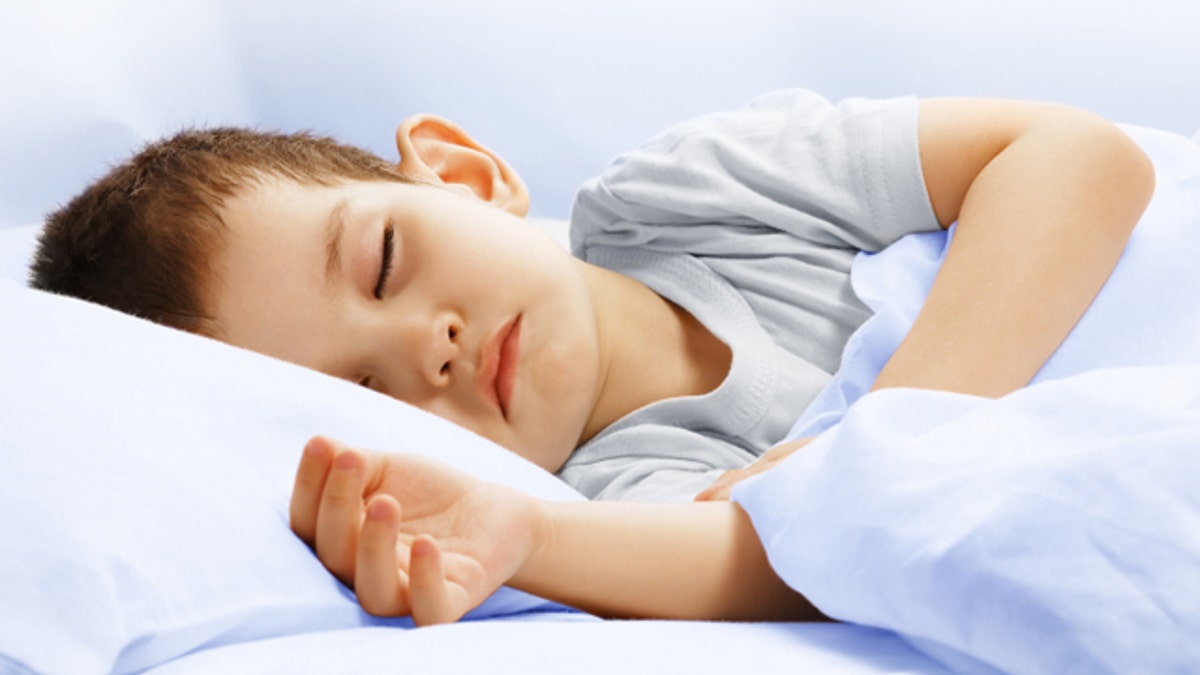
Parents of children who snore may have more to worry about than just a noisy bedtime. Irregular breathing during sleep could actually have much more serious implications for a child’s behavior.
In the largest comprehensive study of its kind, researchers looked at parents’ reports of their children’s sleep breathing patterns over the first six years of their lives. More than 11,000 children were involved in the research, each one categorized by how and when their breathing issues presented.
Children with the most severe breathing problems were 40 to 100 percent more likely to develop a clinically significant behavioral problem – such as hyperactivity, aggressiveness, and emotional problems.
“This is the largest study to date on this possible link,” said Karen Bonuck, a professor of family and social medicine at Albert Einstein College of Medicine in the Bronx of New York City and lead author of the paper. “Previously other researchers have looked at associations with sleep-disordered breathing and behavior, but most of those studies tended to be from smaller data sets than ours or didn’t follow the children over enough time. We were able to obtain data from parents’ reports over a period of six years – providing a nice snapshot [of] early childhood.”
This week is National Sleep Awareness Week, so Bonuck said her research and past research conducted on the topic show that it is important for parents to be much more knowledgeable about what their children’s sleep patterns really mean.
Sleep-disordered breathing (SDB) refers to breathing difficulties during sleep such as snoring, mouth-breathing, and sleep apnea (pauses in breathing during sleep). According to the American Academy of Otolaryngology – Health and Neck Surgery (AAO-HNS), about 10 percent of children snore regularly. Two to 4 percent of children percent suffer from sleep apnea.
Parents were asked to fill out multiple questionnaires, providing details about their children’s SDB symptoms from six months old to nearly 6 years of age. When the children were 4 and 7 years old, parents filled out a “Strengths and Difficulties Questionnaire,” providing an assessment of their child’s hyperactivity and emotional symptoms.
Bonuck, along with her co-author Ronald Chervin, a professor of sleep medicine and neurology at the University of Michigan, combined all the different patterns of snoring and sleep breathing problems and placed each child into one of five groups depending on the severity of their symptoms and the age when symptoms peaked. They also accounted for other variables that might have influenced the outcomes.
“Without a doubt, SDB had the strongest effect [on behavioral difficulties],” Bonuck said. “The effect was greater than any of the other variables we looked at – which included male gender, socio-demographic variables, family adversity, the resources in the home environment, etc. These [SDB] clusters predicted poor emotional and behavioral outcomes so well that the SDB symptoms that we saw at 4 years were just as predictive at 7 years of behavioral difficulties.”
The reason for such an association remains a mystery. Because the team only tested for cause and effect, they can only speculate as to why a link between poor breathing during sleep and behavioral problems may exist.
“There have been many different explanations,” Chervin said. “One of them is that a child can be sleep deprived, but they have a biological imperative to be awake so they can learn - childhood is critical time for learning. So there is a strong biological tendency to counteract the sleepiness as much as possible, such as jumping around or making a lot of noise to keep yourself awake.”
Another theory lies in the fact that children's brains are in a crucial stage of development during their early years and need the proper amount of oxygen during rest.
“SDB causes some abnormal gas exchanges - excess carbon dioxide, too little oxygen – which can disrupt homeostasis,” Bonuck said. “If you have these disruptions occurring at such young ages, the potential for the insult is greater. A lot of the disruption is in the pre frontal cortex – which affects attention, executive functioning, behavioral inhibition, and self regulation.”
While the team’s findings are significant, Bonuck doesn’t want to cause panic - just to be aware of how their children are sleeping.
“Parents should not be alarmed,” Bonuck said. “But if they believe or observe their child to have persistent mouth breathing, they should talk to their pediatrician. Parents tend to be very unaware of the effects of SDB. Half of parents endorse snoring as a sign of healthy sleep. But really it’s an indication that something should be examined to remediate these problems early on.”







































